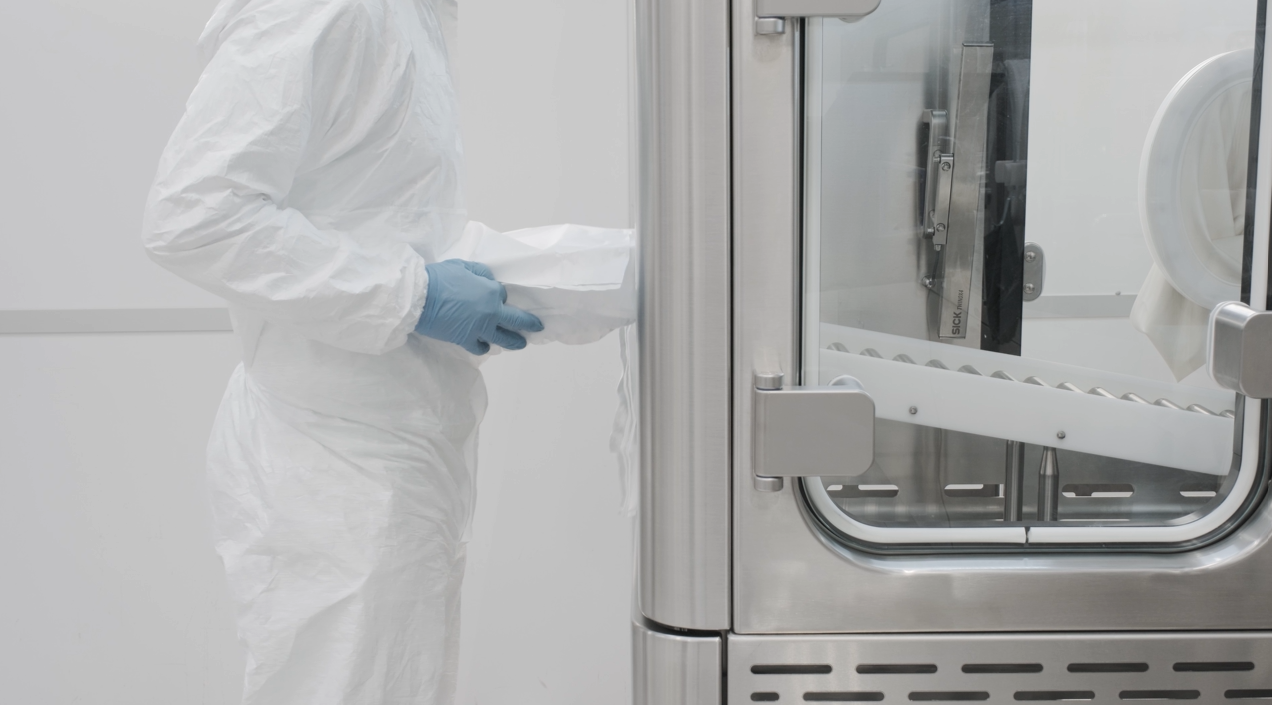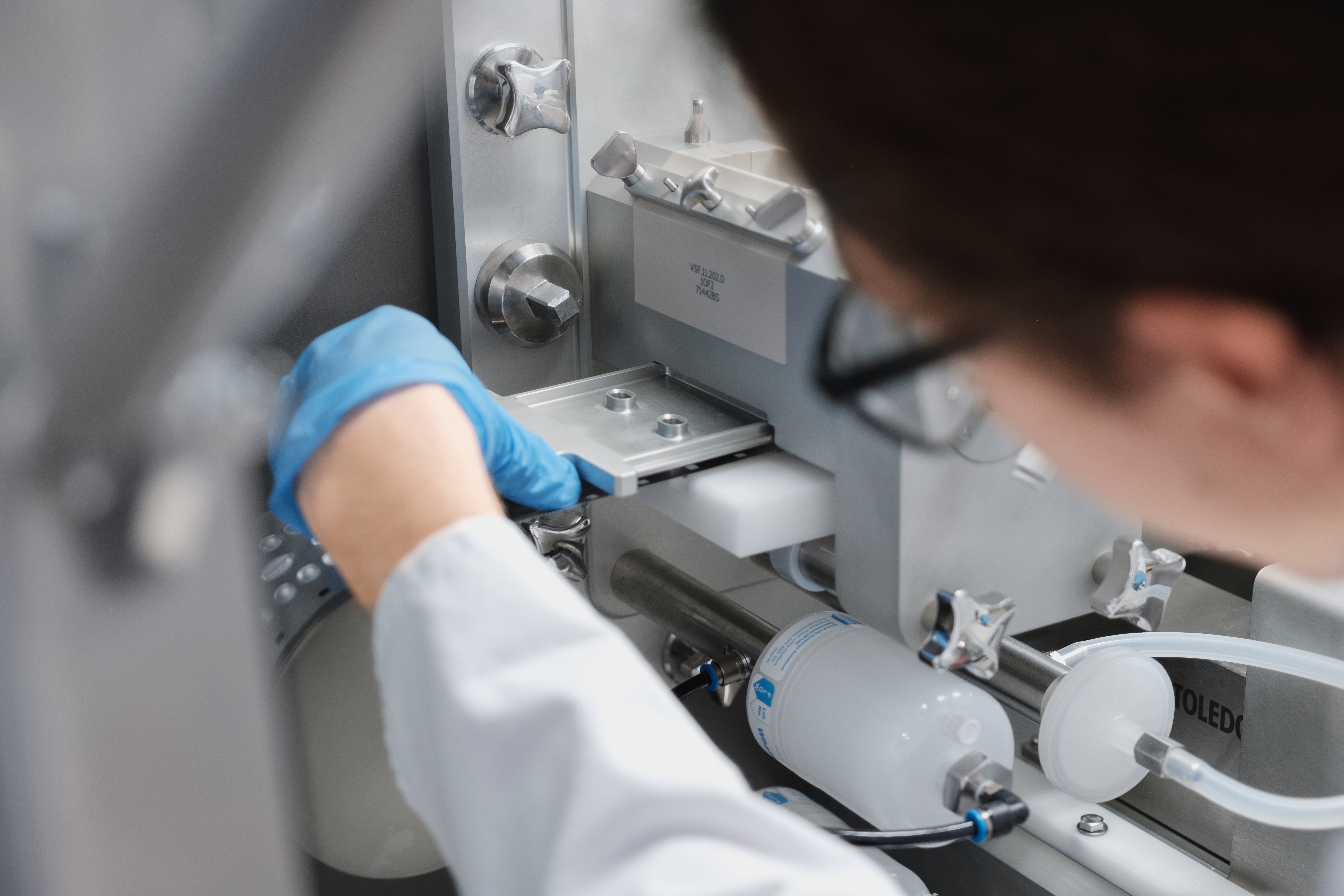Putting Annex 1 into Practice: What Small-Batch Manufacturers Need to Know
In this webinar recap, David Johnson, Sales & Marketing Director at 3P innovation, and Tracy Moore, Principal Consultant at TM Pharma and former...
5 min read
Georgia Lewis-Marston
:
17 October 2025
This week, I had the chance to sit down with Paul Beard, Operations Director at 3P innovation, to explore what truly distinguishes our Customer Care team.
With a background as a maintenance manager, Paul brings a unique perspective on the importance of professional, trustworthy, and dependable support, qualities he’s committed to instilling within his team.
We discussed the value of involving the original design and build engineers in customer support, the meaningful ways we measure customer satisfaction, and the specialist skills required for aseptic systems such as roboFIL™. Paul also shared how his team’s quick response and deep technical expertise have helped customers avoid costly downtime.
To start, what would you say sets 3P innovation’s Customer Care division apart from others?
"Well, one thing that really helps, is my previous experience as a maintenance manager. That experience really showed me how important it is to have a partner who does what they say they’ll do, someone you can trust, who’s professional and technically capable. I believe that’s exactly what our Customer Care team delivers here at 3P innovation, and it’s something I always try to encourage. Another big factor is that we have the Engineering Support Team backing us up whenever there’s a machine issue or a deeper technical question. These are the people who originally designed and built the machines. They took the machine from concept all the way through to commissioning, so they know the equipment inside out, how everything works, and how it’s supposed to work. That’s pretty different from how a lot of companies operate. Usually, a company will design a machine, train their technicians to service it, and that’s it. We don’t work like that. Yes, our technicians receive in-depth training, but they also have direct support from the engineers who built the machine - the depth of knowledge and support we offer is on another level. Our Customer Care team is made up of people with a mix of skills: some with engineering backgrounds, some with project management experience, others who have worked directly with customers and understand the value of communicating well, and people who are detail-oriented and make sure we deliver on what we promise. Also, due to the size of our team, we’re also very flexible in the support that we offer."
How does having the original engineers involved in customer support improve the customer experience?
"It’s a real game-changer. The key thing is that when the Customer Care team needs second-line support, we can go straight to the Engineering Support Team, the engineers who actually designed and built the machine; they’ve been with it from day one. They know it inside out and take a lot of pride in their work. If something’s not running right, they genuinely want to fix it. It’s personal for them, and that level of care really comes through in the support that we provide."
How do you and the team measure customer satisfaction?
"For us, the biggest indicator is repeat business. If a customer comes back for additional machines, that tells us we’re doing something right - not just with the product, but with the support around it. We’ve had customers return over many years, some buying four, five, even six machines. On top of that, we have a few structured ways to gather feedback. We undertake surveys at key points - such as during Factory Acceptance Testing, 100 days after installation, and after every preventive maintenance visit. For long-term customers, we also check in periodically with face to face meetings. All the feedback we get is reviewed by our Quality team, and anything important is flagged, tracked, and fed back into our continuous improvement process. It helps us move forward and makes sure that we deliver exactly what our customers require."
What unique support considerations are needed for aseptic systems like roboFIL™?
"Aseptic systems like roboFIL™ require a very specialised level of support because we're not just dealing with equipment performance, we're dealing with patient safety and product integrity. Any preventive maintenance or interventions with these machines must be done with this in mind. One of the key aspects is the criticality of the components involved. Everything needs to be designed and maintained to ensure effective sterilisation and all materials need to have full traceability. We assist in the design phase to help ensure parts can be properly cleaned and validated, which is essential in an aseptic environment. Training is another big one - we provide full operational and cleaning process training upfront, but we’re also there for follow-up training if it’s ever needed. What we consistently hear from our customers is that our support stands out because it’s genuinely personal. They value having real people who know their systems and are willing to go above and beyond, especially in such a high-stakes environment. We don’t just offer support; we become an extension of their team."
Can you share a recent example of how your team helped a customer avoid major downtime?
"One of the things that sets us apart is how quickly we can respond, partly because we’re a tight-knit team and also because our field service technicians know these machines inside and out. A good recent example was when a customer decided to run an alternative powder through one of our machines. Now, the machine is designed to handle that, but it does need a few adjustments to run efficiently. Unfortunately, they weren't able to inform us of the change upfront, and some settings weren’t updated, so the production yield wasn't as expected. They called us just after lunch, and we quickly pulled together a response. By the next day, we had both a technician and a senior engineer on site. They ran diagnostics, adjusted the settings, and had the machine back up and running the same day. Later, we got a personal thank-you note from their Head of Clinical Science, which was great to see.
Not every situation needs someone on site, though. A lot of the time, we can support customers remotely - if they allow access, we can connect, run diagnostics, and sort out the issue over the phone or by email. Our response time during working hours is usually within four hours, and we’re always looking at ways to improve that even further."
So, can you explain what’s in the Critical Spares Package and how it helps with long-term performance?
"The Critical Spares Package is there to help maintenance teams stay one step ahead. It's all about making sure they’ve got the right parts on hand, so if something goes wrong or wears out over time, it doesn’t turn into major downtime. What we do is assess the full bill of materials for the machine and break the parts down into categories. First off, we’ve got format change parts, so if the customer want to run a different capsule size, or a new vial, they’ve got the parts ready for that. Then there are wear parts, things like seals, springs, wipers. We know these are going to need replacing eventually, so we recommend they keep those in stock. Next up, we look at parts that get removed for cleaning and might get damaged or even lost during this process. If one of those is critical to the process, meaning if it fails, the machine is down, then we flag it. If it’s not essential, but still useful to have, we note that too. We also call out any long-lead items, parts that might take weeks to get hold of. That gives customers the opportunity to make an informed decision whether they want to carry a spare or not. We provide lead times, part quantities, and pricing, so everything’s clear. Most customers go with our recommendations, especially when they’ve previously suffered machine downtime on other equipment and understand what a delay can cost. In some cases, we also include future upgrade options, say if they want to scale up production or modify functionality at a later date."
And what about making sure the parts are good quality and traceable?
"Yeah, that’s a big part of it. We’ve got a solid supplier network, both in the UK and overseas, but they’ve all been properly vetted. We only work with suppliers that are ISO 9001 accredited as a minimum, and our Quality team carry out regular audits too, just to make sure the suppliers meet our requirements, especially with some of the more complex parts. Before we bring a supplier on board, we’ll undertake test runs with them, check how they communicate, what the part quality’s like, how fast they deliver, and once they’re approved, we keep reviewing them regularly. Every part we send out goes through our proven quality assurance process. Each spare part order is managed by one of the Customer Care team, it has its own works order reference, and everything’s verified and signed off before it leaves us. We’re detailed; we even track which technician checked the part and the serial number of the measurement equipment they used. The customer gets a certificate of conformity with every part, and we keep a full record in case anything ever needs tracing back so yes - we’re confident that the parts are up to spec, they’re competitively sourced, and they’re fully traceable - which is especially important for high-integrity systems."

In this webinar recap, David Johnson, Sales & Marketing Director at 3P innovation, and Tracy Moore, Principal Consultant at TM Pharma and former...

As the pharmaceutical industry advances into more complex modalities, from biologics to cell and gene therapies, the need for flexible,...

Our DPI blister filling capabilities draw on long-standing experience, our founder, Tom Bailey, is one of the named inventors of the DPI filling...
